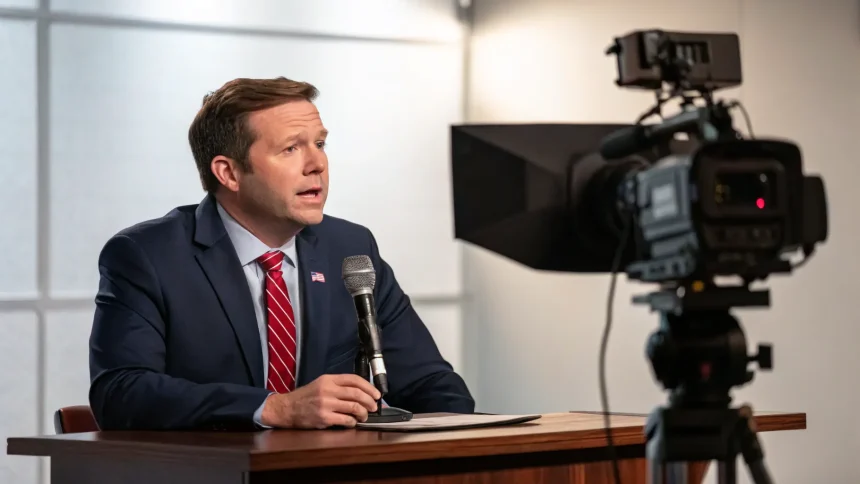Republican Representative Mike Lawler of New York has publicly voiced opposition to former President Donald Trump’s tax bill during an appearance on Fox Business Network’s “Varney & Co.” program.
The congressman’s stance highlights growing divisions within the Republican Party over tax policy as the GOP navigates its economic agenda. Lawler, who represents New York’s 17th congressional district, becomes one of the more prominent Republican voices to break with Trump on tax matters.
Republican Tax Policy Divisions
During his Fox Business appearance, Rep. Lawler outlined his concerns with the Trump-backed tax legislation. While specific details of his objections weren’t provided in the transcript, his public opposition signals potential challenges for unified Republican tax policy.
Lawler’s position is particularly notable as he represents a district in New York, a high-tax state where residents were significantly impacted by the $10,000 cap on state and local tax (SALT) deductions implemented in Trump’s 2017 Tax Cuts and Jobs Act.
The congressman joins several other Republicans from high-tax states who have previously expressed concerns about certain aspects of Trump-era tax policies, particularly those affecting their constituents’ ability to deduct state and local taxes on federal returns.
Political Implications
Lawler’s willingness to publicly oppose Trump’s tax plan on a conservative-leaning business network demonstrates the complex political calculations facing Republicans in competitive districts. Elected in 2022, Lawler represents a swing district that had previously been held by Democrats.
His stance may reflect both local constituent concerns and broader political positioning as Republicans debate their economic platform. Tax policy remains a central issue for the GOP, with different factions advocating for varying approaches to tax cuts, revenue generation, and deficit reduction.
The public disagreement also highlights the ongoing influence Trump maintains over Republican policy priorities, even as some elected officials seek to chart independent positions on specific issues.
Economic Context
The debate over Republican tax policy comes amid broader economic discussions about:
- The future of the 2017 Tax Cuts and Jobs Act provisions set to expire in 2025
- Concerns about federal deficits and national debt
- Inflation’s impact on American households
- Regional economic disparities between high-tax and low-tax states
Lawler’s appearance on “Varney & Co.” suggests Republicans are actively debating these economic questions as they develop their policy agenda and messaging for upcoming legislative battles and election cycles.
The congressman’s opposition also raises questions about the potential for bipartisan tax reform efforts, particularly on issues like the SALT deduction cap that affect both Republican and Democratic constituents in high-tax states.
As Congress continues to grapple with economic challenges and fiscal policy, Lawler’s public stance signals that Republican unity on tax issues cannot be taken for granted, even on proposals backed by the party’s most influential figure.









